
EmpowED
Welcome to EmpowEd, our blog where we share advice and resources to help empower children through education around Body Safety, Consent, Social & Emotional Intelligence, Gender Equality, Diversity and Inclusion.

Why I Wrote Respect Me! Respect My Boundaries!
As a young woman growing up, I was fortunate enough to have the confidence to say what I thought, and in my own way, set boundaries around what behaviours towards me and my friends I would tolerate and what I would not. But as the years have passed, I realise not everyone has that confidence. In this political climate, where the rhetoric is often dismissive, disrespectful and derogatory towards many groups I thought what tools and skills do I have to change the conversation around disrespectful behaviours and standing up to those who display them. Writing kids’ books about topics...
Why I Wrote Respect Me! Respect My Boundaries!
As a young woman growing up, I was fortunate enough to have the confidence to say what I thought, and in my own way, set boundaries around what behaviours towards me and my friends I would tolerate and what I would not. But as the years have passed, I realise...

Speak Kindness: How Positive Self-Talk Shapes Your Child’s Inner World
We are our children's most enthusiastic supporters always ready to offer praise and encouragement. "What a great drawing! I really like how you used the blue paint.""I love how you figured that out by yourself!""It was very kind of you to help your brother!" We celebrate their achievements, efforts and positive behaviour because we want them to feel seen, loved, and confident. But what happens when we aren't there to cheer them on? When they face a tricky problem at school or a social challenge in the playground, what voice do they hear inside their own head? Let’s explore the...
Speak Kindness: How Positive Self-Talk Shapes Your Child’s Inner World
We are our children's most enthusiastic supporters always ready to offer praise and encouragement. "What a great drawing! I really like how you used the blue paint.""I love how you figured that out by yourself!""It was very kind of you to help your brother!" We celebrate their achievements, efforts and...

Tips to Keep Your Children Safe & Empowered During the Holidays.
The festive season is a time for joy, celebration and social connection, but it is also a time of distractions, reduced supervision, alcohol consumption and changes in routine. Over the coming months as you attend community events, family gatherings or go away on holidays, your children will likely spend more time with family, extended family, friends, friends of friends, and total strangers. This period of increased social interactions, distractions and reduced supervision create opportunities for grooming and abuse, on and offline. Before the chaos and festivities begin, take the time to read these Holiday Body Safety Tips and sit down...
Tips to Keep Your Children Safe & Empowered During the Holidays.
The festive season is a time for joy, celebration and social connection, but it is also a time of distractions, reduced supervision, alcohol consumption and changes in routine. Over the coming months as you attend community events, family gatherings or go away on holidays, your children will likely spend more...
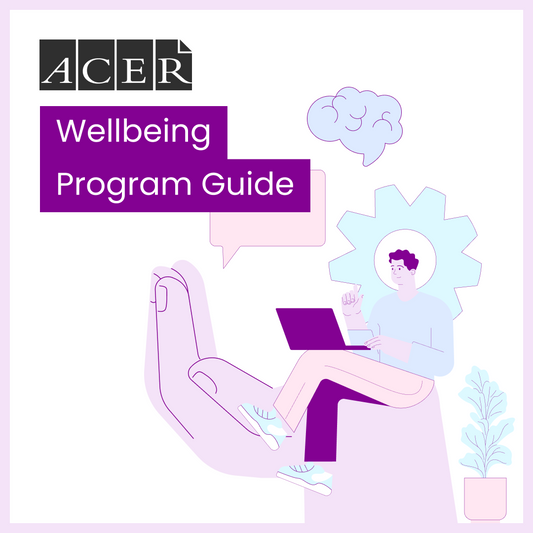
ACER's National Wellbeing Program Guide
We are pleased to announce that Educate2Empower Publishing has been selected for inclusion in the new Wellbeing Program Guide, a significant national initiative launched by the Australian Council for Educational Research (ACER). This comprehensive directory was commissioned by Tasmania's Department of Health and developed in close collaboration with the Department for Education, Children and Young People. It serves as a vital resource for schools across Australia, aiming to catalogue and showcase high-quality, evidence-based wellbeing programs. The guide acts as a 'one-stop-shop' for educators, enabling them to confidently assess and choose programs that best suit the specific needs of their students....
ACER's National Wellbeing Program Guide
We are pleased to announce that Educate2Empower Publishing has been selected for inclusion in the new Wellbeing Program Guide, a significant national initiative launched by the Australian Council for Educational Research (ACER). This comprehensive directory was commissioned by Tasmania's Department of Health and developed in close collaboration with the Department...
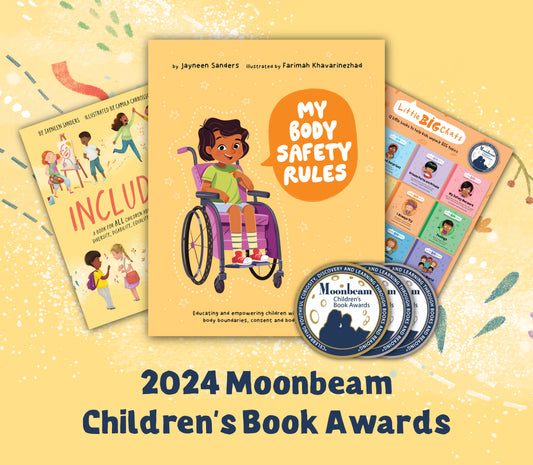
GOLD and SILVER in the 2024 Moonbeam Children's Books Awards
We are thrilled to announce that three of our titles have been recognized with top honours at the 2024 Moonbeam Children’s Book Awards! This prestigious award celebrates excellence in children’s books, and we are beyond proud to see our work acknowledged among the best in the industry. We strive to empower children through our books, and these awards affirm the impact our books are having on young readers and their communities. Gold Winner in Health Issues: My Body Safety Rules Buy Book Winning the Gold Medal in the Health Issues category, My Body Safety Rules is a book that...
GOLD and SILVER in the 2024 Moonbeam Children's Books Awards
We are thrilled to announce that three of our titles have been recognized with top honours at the 2024 Moonbeam Children’s Book Awards! This prestigious award celebrates excellence in children’s books, and we are beyond proud to see our work acknowledged among the best in the industry. We strive to...
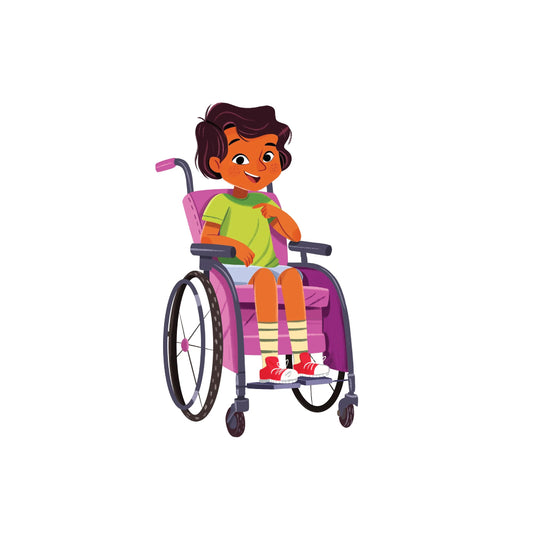
7 Body Safety Rules: Written Specifically For Kids With Disability
Rule 1: Asking for Consent Ensure all people who interact with your child ask for their consent before entering their body boundary. Ensure you child knows that a body boundary is the invisible space around their body (and wheelchair). It is their personal space — a space just for them. Discuss what consent means with your child: it means asking them if something is okay or not okay. It means asking for permission. If your child is non-verbal work out ways they can indicate ‘yes’ or ‘no’ when people ask for their consent. Rule 2: Checking In And even...
7 Body Safety Rules: Written Specifically For Kids With Disability
Rule 1: Asking for Consent Ensure all people who interact with your child ask for their consent before entering their body boundary. Ensure you child knows that a body boundary is the invisible space around their body (and wheelchair). It is their personal space — a space just for them....
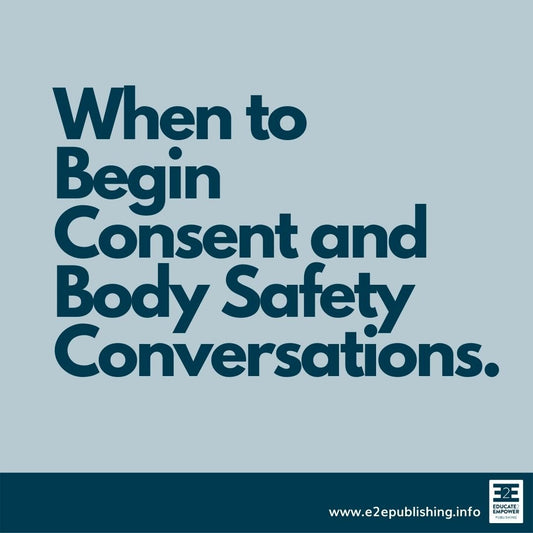
When to Begin Consent and Body Safety Conversations
We regularly get asked by parents and carers. “When should I start teaching my child about consent and body safety?” It’s an excellent question. Below is an approximate guide on when to begin conversations with your child around consent and Body Safety. All children are different, and you know your child best, so also be guided by their ability to focus and the questions they ask. These conversations are ongoing and can happen over years. Use their questions, family discussions, children’s books, and situations that may occur to have open and ongoing conversations. Everyday situations that may arise, can be...
When to Begin Consent and Body Safety Conversations
We regularly get asked by parents and carers. “When should I start teaching my child about consent and body safety?” It’s an excellent question. Below is an approximate guide on when to begin conversations with your child around consent and Body Safety. All children are different, and you know your...
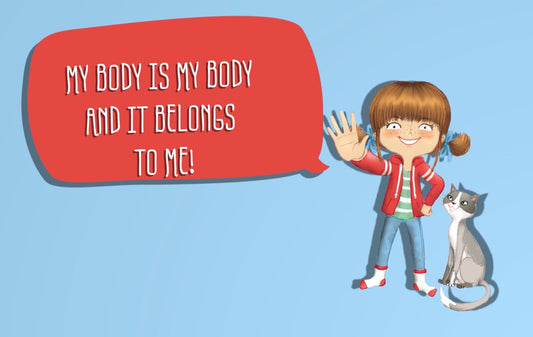
ROLE PLAY: CONSENT ‘WHAT-IFS?’
When it comes to teaching children consent, we know some parents, carers and educators are unsure where to start. Here are some ideas for role-playing different scenarios to help educate and empower children. It helps them to rehearse what to do and say in an uncomfortable situation. Practicing scenarios increases their chance of knowing exactly what to do or say if a situation does occur and lessens the likelihood of them ‘freezing’. Plus, the connection is fun! Give it a try, but before you start, make sure you decide on who is playing which part and that the child has...
ROLE PLAY: CONSENT ‘WHAT-IFS?’
When it comes to teaching children consent, we know some parents, carers and educators are unsure where to start. Here are some ideas for role-playing different scenarios to help educate and empower children. It helps them to rehearse what to do and say in an uncomfortable situation. Practicing scenarios increases...
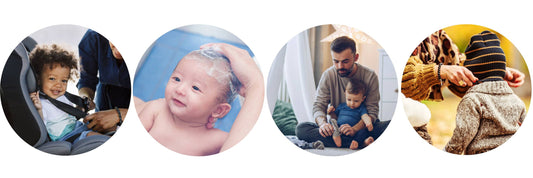
What CONSENT looks like with a non-verbal child
Teaching consent with a non-verbal child is about respecting their body boundary and explaining to them what you are doing as you interact with them. Here are some examples: “I’m just going to pop you in the car seat so you will be safe. This won’t take long. I will need you to move your arms up so I can fit the straps over them. We did it! Thank you so much!” “See this big bottle. This is shampoo. I’m just going to wash your hair with the shampoo so your hair smells fresh and clean.” “Oh look! These are...
What CONSENT looks like with a non-verbal child
Teaching consent with a non-verbal child is about respecting their body boundary and explaining to them what you are doing as you interact with them. Here are some examples: “I’m just going to pop you in the car seat so you will be safe. This won’t take long. I will...

I'm NOT Sorry!
“Bess,” said Nana. “Say sorry.” “But I’m NOT sorry,” replied Bess. “Ty pushed me off the swing, so I pushed him back.” We’ve heard it all before — girls, from a young age, told to say sorry. To be polite. To have their manners. To be a good girl. To cause no waves. To keep the peace. But what if they’re NOT sorry? What if they were simply standing up for their rights? What if they didn’t like what the person had said or done to them? What if they wanted to use THEIR voice? Times...
I'm NOT Sorry!
“Bess,” said Nana. “Say sorry.” “But I’m NOT sorry,” replied Bess. “Ty pushed me off the swing, so I pushed him back.” We’ve heard it all before — girls, from a young age, told to say sorry. To be polite. To have their manners. To be a good...
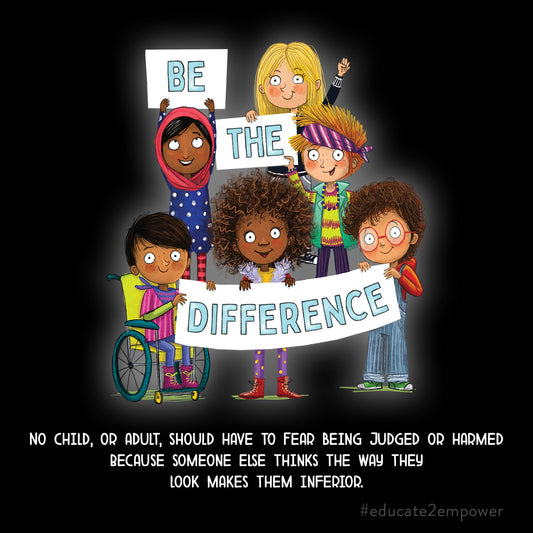
What can we do to combat Racism?
In the world right now, and particularly in the U.S.A. there is a lot of unrest, unhappiness, fear, anger, frustration, hopelessness due to the still ever present acts of racism and particularly injustices against people of coloured skin. For those of us who are lucky to live and work in places where people are accepting and appreciative of our differences, we can see what is happening, see the pain and suffering — but wonder, how can we really help? How can WE make a difference? In localities where racism is rife, peaceful protesting (raising awareness), joining politics (being a leader...
What can we do to combat Racism?
In the world right now, and particularly in the U.S.A. there is a lot of unrest, unhappiness, fear, anger, frustration, hopelessness due to the still ever present acts of racism and particularly injustices against people of coloured skin. For those of us who are lucky to live and work in...
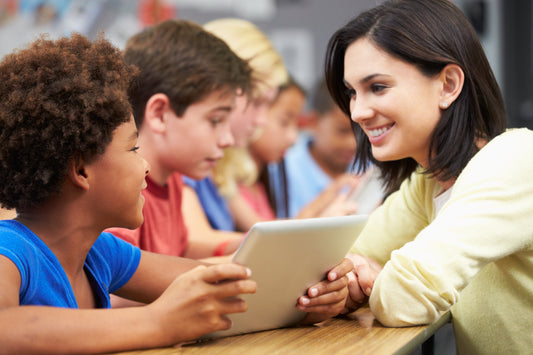
12 Things I Want All Beginning Teachers to Know
1. You are incredibly powerful. You can make an enormous difference to a child’s self-esteem, confidence and well-being. Talking to and treating a child with respect is key to them developing self-belief. You have an opportunity every single day to enhance a child’s self-confidence. 2. It’s the little things that matter. Asking a child how they are, and really listening to their reply is super important. Making that child (and every child) feel like they matter is powerful. So kneel down, place yourself at their level and listen. Try to understand the world from their perspective and always choose compassion...
12 Things I Want All Beginning Teachers to Know
1. You are incredibly powerful. You can make an enormous difference to a child’s self-esteem, confidence and well-being. Talking to and treating a child with respect is key to them developing self-belief. You have an opportunity every single day to enhance a child’s self-confidence. 2. It’s the little things that...